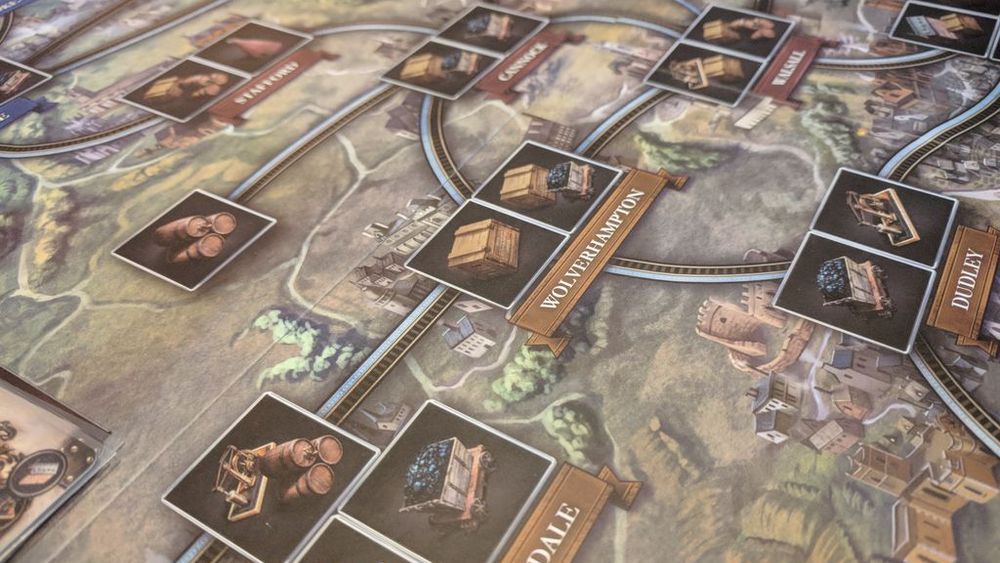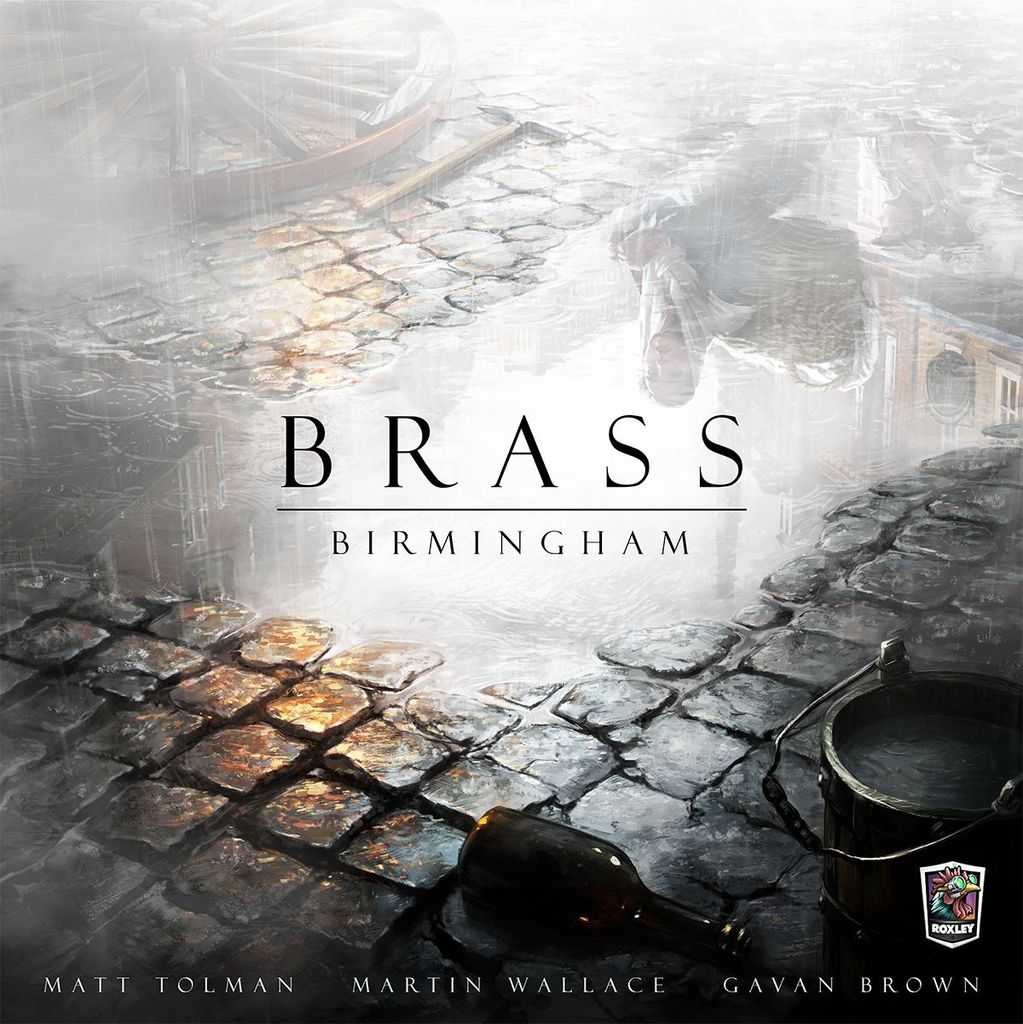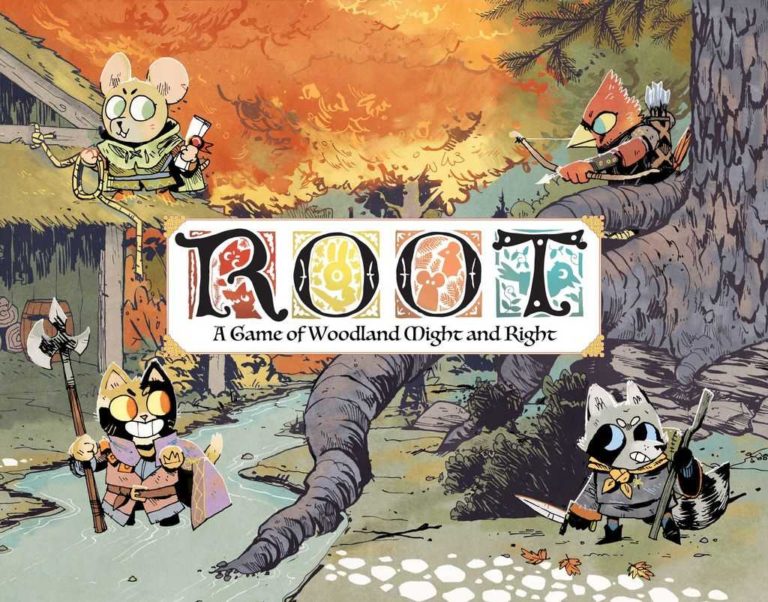Brass: Birmingham Review – A Strategic Board Game Gem
Brass: Birmingham Review – A Strategic Board Game Gem
Have you ever experienced the sensation of being transported back in time, to the smog-filled skies and clanking machinery of the Industrial Revolution? That’s the alluring universe that envelopes you when you sit down to play Brass: Birmingham. As a seasoned board gamer and a passionate connoisseur of strategic gameplay, I’ve waltzed through countless universes crafted by cardstock and tokens, but Brass: Birmingham offers an enticing dance of wit and economy that keeps me coming back. In this Brass: Birmingham review, I’ll share with you why it’s not just a game, but a journey through industrial landscapes filled with cunning decisions and strategic depth.
Key Points:
- Brass: Birmingham is a strategic board game set in the Industrial Revolution.
- It offers intricate gameplay, resource management, and area control.
- The game has two eras – Canal and Rail – each with its own dynamics and challenges.
- The historical setting and thematic resonance of the game add depth to the gameplay.
- Brass: Birmingham offers both Deluxe and Standard Editions, each with high-quality components.
- The game has a steep learning curve but provides a rewarding experience once mastered.
- The community reception and discussions around the game have been positive.
- The game offers high replayability and variability, making each playthrough unique.
- Brass: Birmingham is well-suited for both casual gamers and hardcore strategists.
- The Deluxe Edition is worth the additional investment for fans who value enhanced components and a more immersive experience.
You see, board games are more than just pastimes; they’re lessons in critical thinking, and Brass: Birmingham is a masterclass. I remember the very first time I unfolded the board, and the rich aroma of freshly minted game pieces wafted through the air. The laughter and contemplative silences that accompanied my first gameplay are cherished memories. As we delve into this multi-faceted gem, please join me as we explore each nook and cranny of its elegant system, examining everything from the coal-darkened artwork to the cog-turning mechanisms that make this game a shining example in the world of board gaming.
Unveiling Brass: Birmingham
As I open the box, the weight of history and the thrill of enterprise unfold before me. Brass: Birmingham beckons with its promise of strategic conquest and industrial expansion, appealing to my deep appreciation for games that marry historical richness with complex decision-making. Let’s pull back the curtain on this strategic board game gem and discover the beats of its mechanical heart.
Overview of the Game
Brass: Birmingham presents an engaging tableau of industry and progress, where 2 to 4 players compete to stake their claim on the economic landscape of the Victorian era. The goal is no small feat: to develop, build, and establish your industrial might as a testament to your strategic prowess. Beyond the simple pursuit of victory points lies a lattice of intricate choices, where every move echoes across the valleys of this ruggedly beautiful game.

Players are cast as entrepreneurial tycoons, each armed with a hand of cards that propel their actions – a delicate mix of location and industry that teases the brain with possibilities. Throughout the game, you’ll be expanding your network of canals and railways, erecting industries, and hustling to sell cotton, manufacture pottery, and distill the all-important Birmingham beer. It’s a symphony of resource management, area control, and carefully timed plays, where every decision intertwines with the pursuits of your opponents, setting the stage for a deeply satisfying strategic dance.
Players will compete to develop, build, and establish their industrial might in the Victorian era, making intricate choices and strategic moves in Brass: Birmingham.
Historical Context and Setting
As I immerse myself in Brass: Birmingham, it’s not just the meticulous economic system that captures my attention, but the window it provides into a pivotal historical epoch. Situated in the heart of England during the Industrial Revolution, the game is not only a testament to steel and steam but a tribute to human innovation and ambition. Each game session is a foray into the past, with players championing the roles of industrialists amidst the transformative era that reshaped Birmingham and the world.
The setting is not just a backdrop; it is a living, breathing component of the gameplay. The thematic resonance is clear as day: locations on the board correlate to historical hotspots of trade and manufacture – places that once buzzed with the energy of progress and now serve as the battleground for our industrial empires. And it’s not just about building industries; it’s about weaving the very fabric of trade routes that expound the essence of the period.
Game Editions and Components
Opening the box of Brass: Birmingham, the first touch of the components immediately sends a signal to my fingertips – the game is a treasure trove of tactile and visual delights. Whether you’re someone who revels in the heft of a well-crafted game piece or a visual connoisseur who appreciates the marriage of form and function, the Deluxe Edition and the Standard Edition both offer a feast for the senses.
The Deluxe Edition is like the cherry on top of an already delectable cake. It boasts upgraded tokens – metal coins and iron clays – that clink with the sound of authenticity. The intricate artwork on the board and cards weaves an evocative tapestry of the era, with an attention to detail that pulls you deeper into the game’s thematic depths. Yet, the Standard Edition doesn’t skimp on quality either; its well-constructed components ensure your journey through Birmingham’s industrial haze is immersive and visually splendid.
Both editions are packed with:
- Durable cards that endure the test of time and frequent shuffling
- Building tiles that give weight to your industrial empire
- A solid board that lays the foundation for your strategic conquest
More than once, I’ve heard amused gasps and seen curious fingers wander over the components, eager to explore. It elevates the game experience, providing a tactile narrative to your roadmap to victory.
Delving into Gameplay
The true allure of Brass: Birmingham lies beneath the surface, where the gears of industrial might are in constant motion. Now, let’s roll up our sleeves and delve into the robust gameplay – a crucible where strategies are tested and industrial magnates are born.

The Two Eras: Canal and Rail
Oh boy, talking about Brass: Birmingham without diving into its two dynamic eras – Canal and Rail – is like eating fish and chips without the vinegar; it’s just not the same experience. The changeover is a real game-changer, let me tell you. The Canal Era introduces us to the industrial dance, with players gingerly laying down their groundwork. It’s a bit like first dates – you’re cautious, testing the waters, trying not to overcommit. Remember that time I invested everything in Cotton Mills early on and the market just didn’t favor them? Lesson learned.
Now, the Rail Era is where the gloves come off and the real boxing match begins. It’s like the second date where you realize you’re either soaring into love or plummeting into “thank you, next”. The economic landscape blossoms like a steel magnolia, and all the pieces are vying for their place in industrial dominance. That’s where the game opens up, and you really need to prove your chops. The time I converted all that cautious Canal groundwork into a sprawling Rail empire? Absolutely exhilarating – a testament to strategic forethought and a hint of good fortune.
Transitioning from the cautious Canal Era to the competitive Rail Era in Brass: Birmingham is like moving from cautious first dates to a high-stakes boxing match, where strategic forethought and a bit of luck are essential for success.
Replayability and Game Variability
Replayability is the lifeblood of any board game worth its salt, and let me tell you, Brass: Birmingham is the veritable immortal vampire of the board game world in that respect. The variable setup and the sheer depth of strategies ensure that no two games feel alike. I’ve played this beauty dozens of times, and I still feel those ripples of excitement pondering my opening moves.
On top of the basic variability, we’ve got these lovely role cards that add another layer of unpredictability to each game. What’s striking, though, is the way that the variability serves to highlight player skill. Strategy adaptation is key; remember that time I planned to build a network in the north, but the cards led me to pivot southward instead? Led to one of the most nail-biting finishes I’ve ever experienced. It’s like jazz – sometimes the notes you don’t play are as important as the ones you do.
Moreover, this game’s replayability is through the roof because of how the dynamic shifts among players. You’re not just playing against the game; you’re dancing with the other industrialists at the table. You all grow together, learning and adapting, and that’s part of what makes each play feel like a new story in the saga of 19th century industry.
Player Experience and Community Feedback
The community’s reaction to Brass: Birmingham has been akin to discovering a lost Beethoven symphony – we’re talking critical acclaim with a side of fervent fan loyalty. My personal journey with the game mirrors that sentiment. From the first fumbling attempts to grasp the resource market to the satisfying clack of those weighty clay chips, the player experience keeps skyrocketing.

Learning Curve and Accessibility
Let’s face it: Brass: Birmingham isn’t exactly a walk in the park, unless that park is full of economic pitfalls and industrial traps for the unwary. The learning curve – oh, it’s real. And steep. That first game can feel like you are deciphering an ancient scroll written in economic jargon, especially for those new to heavier games. Yet, it’s this very complexity that is so rewarding. Remember the first time we cracked open the rulebook, the slow, methodical process of internalizing each rule? But as with any great journey, the destination is oh so worth the hardships along the way.
Accessibility in Brass: Birmingham isn’t about the ease of learning but rather the satisfaction of mastery. You might need a bit of patience, and a Game Master friend is a godsend for smoothing over the initial humps. And while the game’s iconography and design potentially ease the cognitive load, they also throw in a few spicy challenge curves that keep you on your toes game after game.
From my gatherings in the gaming community, the consensus is clear: Brass: Birmingham respects its players by challenging them, and it encourages growth. With each game, the mechanics become more intuitive, the strategy more second-nature, and the game, in turn, becomes more accessible. It’s like learning a language – I can now fluidly “speak” fluent Brass: Birmingham and it feels fantastic.
Community Reception and Discussions
Roll up, roll up, gamers of all stripes – Brass: Birmingham has been the talk of the town, and for good reason. The community touts it as a shining jewel in the crown of economic strategy games. Dive into any forum, and you’ll stumble upon lively discussions that resemble an industrial revolution-themed book club, minus the frilly hats (unless that’s your thing, no judgment here).
My own interactions have been nothing short of splendid. I’ve learned from the vast spectrum of players. The beginners, chipping away at the basics, the intermediates sharing that lightbulb moment when everything clicks, and the seasoned veterans who’ve strategized every possible scenario like it’s four-dimensional chess. The shared stories, whether it’s about that daring move that paid off or the round everything went belly-up, they’re priceless.
These conversations are what stack the game’s replay value even higher. Someone always has a new strategy ripened for discussion, an unexplored nuance ready for dissection, promoting a community culture that is as collaborative as it is competitive. It’s utterly invigorating being part of such a vibrant hub of ideation and shared enthusiasm.
Comparisons to Other Strategy Games
Now, if you’re like me, you’re always sizing up Brass: Birmingham against its board game contemporaries, trying to find its place in the strategy pantheon. This titan of a game stands shoulder to shoulder with the greats, owing much of its grandeur to the intricate economic system and the careful balance of coopetition (yes, that’s cooperation and competition married in the most delightful way).
Sure, there are games out there that boast deeper themes or more streamlined rulesets, but few can offer the same industrial-scale satisfaction. For instance, compared to other heavy-hitters in the Eurogame domain, Brass: Birmingham carves out its own niche with a unique blend of player interaction and strategic planning. And unlike many games where a lead feels insurmountable, the second “era” transition in Brass: Birmingham provides a soft reset that keeps everyone on their toes until the very end.
Brass: Birmingham stands out in the board game world for its intricate economic system, unique blend of player interaction, and strategic planning, providing industrial-scale satisfaction and a soft reset that keeps everyone engaged until the end.
Value for Money
When shelling out cash for a new game, I often feel like I’m channeling my inner merchant, tasking myself with appraising the venture for future profits of joy and camaraderie. Brass: Birmingham stands up to this scrutiny and then some, offering rich returns on investment for your gaming evenings.
Cost Analysis Relative to Game Experience
Any proper Brass: Birmingham review would be remiss without poring over the cost aspects versus what you’re getting in the box. I’m going to level with you – as an enthusiast of the cardboard arts, I’ve seen my fair share of games that were… let’s just say, less than generous in their box contents. Thankfully, Brass: Birmingham is a bursting treasure chest – a veritable cornucopia of quality pieces that add tangible value to the tactile experience.
It’s like comparing a hearty pub meal to a fancy but insubstantial hors d’oeuvre – both might cost the same, but one leaves you substantially more satisfied. The game’s richness in replayability and strategic depth means your per-play-cost plummets each time you return to its industrial charms. It’s an investment I haven’t regretted, and neither has my gaming circle.
Deluxe Edition vs Standard Edition
When faced with the conundrum of Deluxe versus Standard Edition, it’s a bit like being offered a regular biscuit or a chocolate-covered one – the choice seems obvious to a sweet-tooth. The Deluxe Edition of Brass: Birmingham is the chocolate-covered delight in this scenario, coated in luxurious extras that make the experience all the more decadent. The heftier price tag might cause hesitation, but oh, it is tempting.
From the get-go, the difference is palpable through the superior quality of the components. Those weighty iron clays in the Deluxe version? They clink with the resonance of industry. It’s aesthetic meets practicality, elevating not just the look, but the feel of the game. Trust me, I’m still gleeful over that choice as if it were my finest hour at a high-stakes auction.

On the other hand, the Standard Edition is no slouch. It’s fully functional and still possesses the elegance of the game’s renowned design. The decision ultimately comes down to the premium you place on embellishments. When I splurged on the Deluxe, it wasn’t just for luxury – it was for longevity. I haven’t once regretted it, holding it as a centerpiece in my collection, crowning my shelf with the gravitas it deserves.
FAQs
1. What makes Brass: Birmingham stand out from other strategy board games?
What makes Brass: Birmingham stand out from other strategy board games is its innovative blend of economic mechanics, historical theme, and dynamic player interaction.
2. Can Brass: Birmingham be enjoyed by casual gamers or is it only for hardcore strategists?
Brass: Birmingham can be enjoyed by casual gamers, although it is particularly well-suited for those who relish deeper strategic challenges.
3. How long does a typical game of Brass: Birmingham take to play?
A typical game of Brass: Birmingham takes about 60-120 minutes to play, depending on player experience and strategic depth.
4. Is the Deluxe Edition of Brass: Birmingham worth the additional investment?
The Deluxe Edition of Brass: Birmingham is worth the additional investment for fans who value enhanced components and a more immersive experience.
Conclusion
Reflecting on my experiences and soaking in the community buzz, it’s clear that Brass: Birmingham has carved out its place in the pantheon of strategy games. This Brass: Birmingham review doesn’t merely scratch the surface but dives into the depths, celebrating a game that’s as strategic as it is thematic, as challenging as it is rewarding. Whether you’re a seasoned industrialist or a fresh entrepreneur on the gaming scene, it offers a tableau ripe for discovery and conquest.
When pondering your next evening of tabletop intrigue, Brass: Birmingham emerges as a compelling candidate. Whether you opt for the deluxe decadence or the standard charm, you’re in for a game teeming with rich storytelling and cerebral delights.
May your canals and railways pave the way to enlightenment and entertainment as you embrace the industrial revolution within and forge your own path to victory. Here’s to the countless strategies yet to unfold, the friends to challenge, and the vast landscapes of industry to dominate. Until next time, game on and may your strategies be as formidable as your spirit. Cheers,
Lucas
More Boardgame Reviews:
This article uses material from BoardGameGeek and is licensed under the Creative Commons Attribution-Share Alike License.







